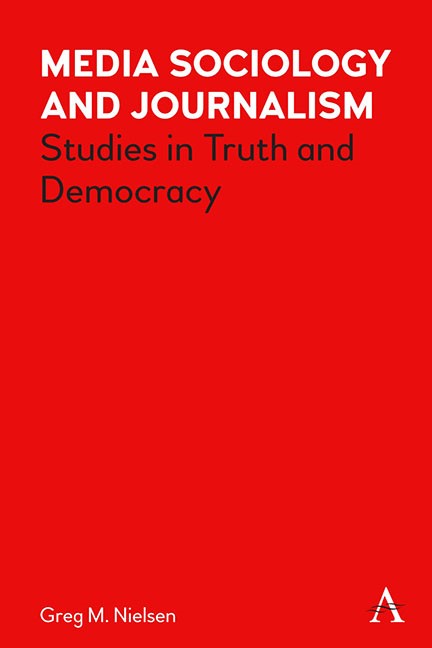Book contents
- Frontmatter
- Contents
- Acknowledgments
- Introduction: Between The Posts
- 1 Fake Populism and News: Freedom versus Democracy
- 2 Political Theory: Deliberative, Agonistic and Dialogic Democracy
- 3 Contemporary Sociology, Journalism and Society
- 4 Acts of Journalism: Truth, Ghosts and Migrant Subjects
- 5 Writing Inequality into the Urban Commons
- 6 Exotopy and Cultural Boundaries: The Secular Question in Quebec
- Conclusion: Is Another Journalism Possible?
- References
- Index
1 - Fake Populism and News: Freedom versus Democracy
Published online by Cambridge University Press: 15 November 2023
- Frontmatter
- Contents
- Acknowledgments
- Introduction: Between The Posts
- 1 Fake Populism and News: Freedom versus Democracy
- 2 Political Theory: Deliberative, Agonistic and Dialogic Democracy
- 3 Contemporary Sociology, Journalism and Society
- 4 Acts of Journalism: Truth, Ghosts and Migrant Subjects
- 5 Writing Inequality into the Urban Commons
- 6 Exotopy and Cultural Boundaries: The Secular Question in Quebec
- Conclusion: Is Another Journalism Possible?
- References
- Index
Summary
I will take Freedom over Democracy any day …
Anonymous QAnon followerPoliticians and journalists play different though often overlapping roles in the production of the relation between truth and democracy. Agents in each of these fields are first-level observers of events and each has a different approach to their sources, constituents and/or actors, as well as to the relations between fact, opinion and truth. In the United States, in particular, both politicians and journalists are navigating a divided world that from one side looks as if a right-wing populism is moving democracy away from what de Tocqueville (1988, 504) called an American “love for the condition of equality” toward a nihilist version of freedom, haunted by the specter of white backlash, xenophobia, sexism, thuggery and general bigotry. Hacker and Pierson (2021, 45) argue an alliance has evolved between the richest faction said to be 0.1 of the 1 percent of most wealthy Americans who heavily finance the Republican Party and by association support its open-door policy to hard-right discourse, on the one hand, and large sections of much less well-off voters and activists that either are disillusioned for having been left behind by globalization and made fearful of what might be taken away or of who might “replace” them, on the other. Republicans receive three times more dark money from top donors than democrats (2021, 56). They call this “plutocratic populism” and argue it is unique to the United States—an alliance of the very, very rich with massive numbers of fiercely loyal voters with modest means.
I propose to take this idea in a slightly different direction and call out the alliance as a fake form of populism. First, it is hard to see how the interest of the richly financed faction of the economic and political elite is founded in the interest of the many constituencies and grievances that render it a people’s movement in a quest for greater democracy. Instead of rejecting all parts of the elite, the movement is fed by a faction that does not work in its interest and whose surrogates are willing to engage in practices that arguably threaten democracy.
- Type
- Chapter
- Information
- Media Sociology and JournalismStudies in Truth and Democracy, pp. 17 - 40Publisher: Anthem PressPrint publication year: 2023

